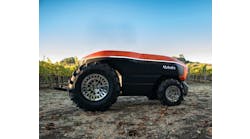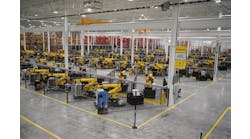Forecasts may be rosy for the U.S. auto industry, but a new Booz & Co. survey concludes that auto executives are still a bit bearish about the industry's outlook.
Based on the survey results, automakers and suppliers expect U.S. vehicles sales to reach 14.5 million units by 2015, compared with predictions by leading industry forecasters of sales topping 16 million vehicles in the same timeframe. The Booz & Co. survey of more than 200 executives from more than 40 companies -- including major OEMs and the suppliers that make components for them -- found widespread skepticism about the auto industry overall. Restructuring Didn't Go Far Enough Although respondents reported some improvement since the recent industry restructuring, almost two-thirds said they believe the restructuring did not go far enough in addressing fundamental structural weaknesses and that the industry is not on a path to achieving full return on invested capital. Nearly a third (30%) of auto executives said they expect a major automotive manufacturer to fail in the next two years. "Although there has been significant improvement in both product strategy and operations as a result of the restructuring, there is still a lot of work to do," said Scott Corwin, Booz & Co. partner. "Many of the practices that got the industry into trouble could re-emerge, particularly if vehicle production exceeds real market demand." But ... Auto Execs Expect to Gain Market Share Auto executives were much more optimistic about their own businesses than the industry at large. More than 80% of respondents indicated that they expect to gain market share in the next three years. The optimism may be driven by strong results in the current year: 30% of supplier respondents and 25% of automotive manufacturers said they anticipate their companies' revenue growth to exceed 15% this year. Sixty percent of suppliers reported that they are actively pursuing acquisitions. Looming Challenges Include China However, both OEMs and suppliers see challenges ahead, perhaps the biggest one looming from China. Fully 90% of executives believe that Chinese automakers will make cars equal in quality to American-made vehicles in 10 years. Approximately 50% of all survey respondents said this could occur in five years. In the shorter term, executives at major automotive manufacturers identified several industry challenges. Seventy-six percent of respondents identified increasing competitive pressure as a critical factor for their companies. In addition: 52% of OEM executives identified pricing as a challenge, 45% expressed concern about the macroeconomic situation, and 34% saw labor relations and legacy costs as an ongoing issue. "Auto manufacturers are watching their competitors closely to see if their basis for competing is through product excellence and technological innovation, or if they will resort to aggressive pricing to gain share," Corwin said. "And there is concern about the impact of the overall economy and when there will be an increase in consumer spending to fuel sales growth." Suppliers Largely Optimistic Meanwhile, suppliers, many of which have been successful at cutting costs since the industry restructuring, are largely optimistic about their pace of growth over the next year relative to the past two years, according to the Booz & Co. survey results. Sales are expanding so quickly that 42% of supplier executives surveyed said the availability of engineering and R&D capabilities was the main obstacle to future growth -- far more than any other obstacle cited. Nevertheless, survey results indicate continued difficulties in ensuring long-term sustainability. Supplier executives reported that capturing a low-cost position (with 56% ranking it in the top two approaches), product quality (37%) and global reach to support OEMs (35%) are the most vital predictors of their success. On the other end of the spectrum, only 11% of auto suppliers said having a well-defined strategy was a key component to success, and only 4% selected market insight. Yet, according to Booz & Co., these are among the prerequisites for achieving a differentiated market position, and thus long-term viability, for most businesses. "Though most suppliers survived the downturn, only a very few have captured the advantaged position necessary to win long-term and earn a fair return on their invested capital," said Brian Collie, Booz & Company principal. "As the business heats up and auto suppliers compete for new vehicle programs, they will need to think carefully about their own distinctive capabilities: what they can do better than anybody else to create a unique place in the competitive landscape of this industry. "Only through innovation in cost or performance, helping to create end-user demand, or establishing themselves as the supplier best positioned to solve an OEM's problems will suppliers be able to get on a path to achieving long-term viability." Alternative Powertrains Not a Factor Overall, industry executives indicated that they do not expect alternative powertrains -- such as hybrid, diesel or electric options -- to have a major impact in the near-term. Almost 75% of executives surveyed expect alternative powertrains to account for less than 20% of all powertrains by 2020. No single technology is expected to dominate the alternative market, suggesting that a variety of powertrains will compete for a small share of the overall market. Implications for the Auto Industry Based on the survey results, Booz & Co. said U.S. automotive OEMs should ratchet up their focus on "building attractive vehicles and rebuilding brands." "Give American car buyers reasons to 'fall in love' again, and to reconnect with heritage brands that hark back to simpler times," the management consulting firm said in a report on the survey. OEMs also should continue to cut costs and "create portfolios and development systems that produce a positive return on investment for all vehicles," Booz & Co. asserted. Meanwhile, suppliers should continue to "aggressively manage costs" and focus on markets in which they are best-positioned to create a "sustained competitive advantage," among other measures. See Also:Voice your opinion!
Voice your opinion!



